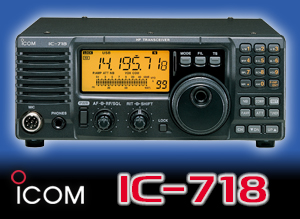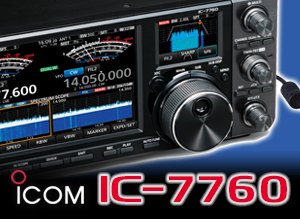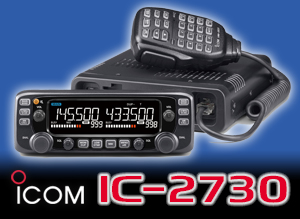So what does being an RSGB Board member really mean?
 We asked current Board Directors to give us their thoughts:
We asked current Board Directors to give us their thoughts:
“A chance to give something back for the enjoyment I have had from amateur radio over many years – here and overseas.”
Most people cite being able to give something back as being a key driver; others want to use their knowledge, skills and experience to benefit the amateur radio service through being part of the National Society. The main rewards come from the satisfaction of seeing a job well done, when someone says thank-you or when a Member is able to do something because of your input. There is no pay and only reasonable out-of-pocket expenses, so no-one does this for the money!
“I’m working full time in a busy and responsible job, but I’m still able to help steer the RSGB; a real opportunity to make a national difference.”
The RSGB is a not-for-profit company so it needs a Board with a business head. At the same time it is all about wireless communication, so having a passion for amateur radio is a requirement.
We do need to have a good mix of skills, knowledge and experience across the Board. The two areas where we would currently like to see more volunteers are marketing/promotional work and financial management.
We have a new Strategy to take us to 2022 and the Board’s job is to co-ordinate the various elements of the Society to implement that Strategy. That will require motivational skills to encourage the volunteer team to work together in delivering the projects, activities and initiatives that will take us to our goal.
You could be involved in project work, negotiating with regulators, liaising with the RSGB committees and a host of other things including the necessary issues of safety, governance and so on. As long as you can bring something appropriate to the table you will be able to contribute. Your own amateur radio interests will often provide the link to the RSGB committees you oversee – all of the current Board are licenced amateurs who have a wide range of interests: microwaves, VHF and HF contesting, QRP, overseas DX operating, propagation, training, running rallies.
“Being on the Board will take up as much time as you want it to; the big difference from my employment is that I do this because I want to, not because I have to.”
Like any volunteer role, it does take time to do the job properly. It is difficult to put a specific time against it but most of the current Directors also work in full-time or part-time employment. There are some fixed commitments, like the monthly Board meetings.
These are mainly face-to-face but occasionally an internet conference call will suffice. Four of the meetings each year are timed to coincide with major events that Directors are also expected to attend: the Annual General Meeting, the Convention and two Leadership Team meetings. These normally require an overnight stay, unless you happen to live nearby. Most Directors miss one or two a year due to holidays, etc. but the expectation is that you will attend most of the monthly meetings.
Other Director time is taken up by writing or responding to Board papers, liaising with Committee Chairs and/or Honorary Officers, responding to emails or Members’ questions.
How are Directors chosen?
There are two routes to the Board. You can gather support from a number of other Members and stand for election at the AGM, or you can put yourself forward for consideration by the Nominations Committee:
- Elected Directors must make a personal statement and provide a CV to show the Members why they should be elected. All elections are by secret ballot and the person with the most votes is elected.
- Nominated Directors also have to provide a CV and are appointed to ll skills gaps or to add strength to a particular area of the business.
Legal stuff
As a Director you will be registered with Companies House so you will need to be upfront about any criminal record, bankruptcy etc. The Society is a Limited by Guarantee Company so all Members are liable for any financial loss, limited to one pound per Member. The Society carries insurance for Directors and Officers to cover any civil liabilities that may arise out of being a Director.
“I care about amateur radio and if I can do my bit to make it a better place and secure its future, I am more than happy to.”
Helping to secure the future of amateur radio is at the core of the RSGB’s Strategy 2022: www.rsgb.org/strategy As well as helping to implement the Strategy across all of the RSGB’s projects, there are many strands of the Strategy that are addressed by being a Board member. For example:
- You will be helping to guide the Society towards our Goal
- Your actions will need to encompass our Values
- Being involved is an example of the Participation priority in action
- New people bring new ideas that will help deliver the Diversity priority
- You will be in a position to ensure that the Society is effective and exible in line with the Organisation priority.
What next?
The January RadCom (due mid-December) will ask for applications for President, several Board members and some Regional Managers. One of the current Board Directors summed up why they chose to get involved:
“Having spent 45 years taking the RSGB for granted (and having the occasional moan) I decided four years ago that the time had come to ‘do my bit’ for the Society and repay the investment from others (and deal with the occasional moan). In that time I have realised the breadth of interests that the hobby offers and our Members enjoy. I have particularly appreciated getting involved in some of the more ‘hidden’ activities such as AROS and the challenges of EMC issues.”
Now is the time for all Members to start thinking “Can I do ‘my bit’ for amateur radio”?
Steve Hartley, G0FUW and Graham Murchie, G4FSG
Category: Front Page News, RSGB Notices, RSGB Strategy 2022











